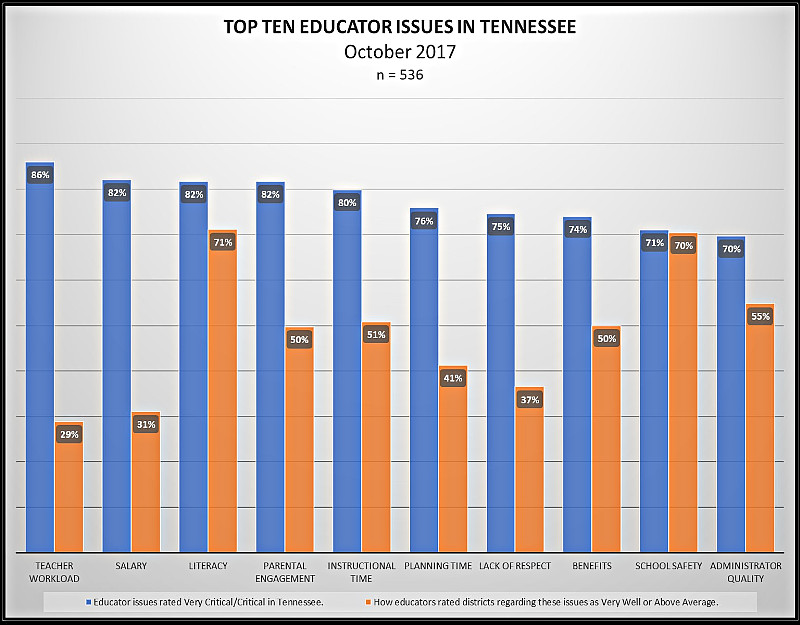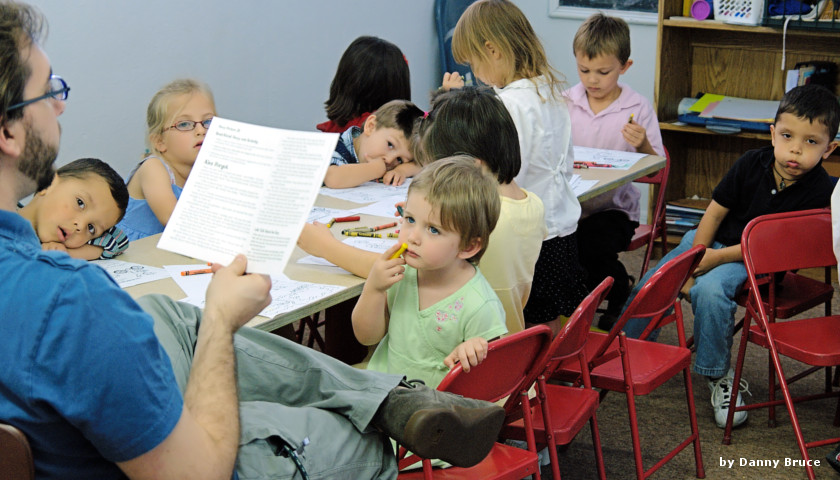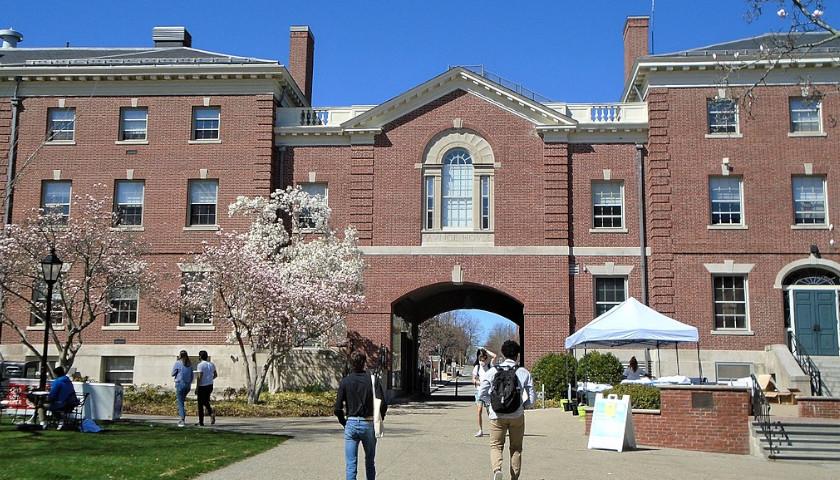Tennessee teachers are worn down by their workload and don’t think their school districts are doing enough to address the problem, results of an October survey by Professional Educators of Tennessee (ProEd) show.
The Nashville-based organization which represents teachers surveyed 536 educators from more than 81 districts. This was the second year for the annual comprehensive survey.
“I wasn’t surprised at all that teacher workload was the number one issue,” said Bethany Bowman, director of professional development for ProEd and a former teacher.
 Bowman said bureaucratic state and district mandates make a teacher’s job exhausting. “There’s so much more to it than just instructing a class,” she said.
Bowman said bureaucratic state and district mandates make a teacher’s job exhausting. “There’s so much more to it than just instructing a class,” she said.
The survey asked teachers to rate around 20 issues as being very critical, critical, somewhat critical or not critical. After workload, the top 10 most critical issues included salary, literacy, parental engagement, instructional time, planning time, lack of respect, benefits, school safety and administrator quality.
The survey also asked educators to rate how they felt their district or school addressed the issues. Only 29 percent of educators rated their districts above average with respect to workload, only 31 percent rated their districts above average for addressing salary issues, and only 37 percent rated their districts above average for addressing lack of respect. However, educators rated their districts high on addressing literacy, or reading on grade level, and school safety.
Bowman said that while testing did not make the list of top 10 critical issues, many teachers mentioned it in comments. Excessive testing is a topic increasingly raised by parents, politicians and others. Bowman said tests are mandated at both the state and district levels and teachers aren’t always aware of which ones are state-mandated versus district-mandated. Districts vary in the number of tests they mandate, but it’s often done to try to please state officials who want data, she said.
In addition, the survey asked teachers about their out-of-pocket spending for their jobs. Twenty-one percent said they have spent more than $500 per year with their own money. One educator said they spent more than $1,000 per year while another said they spent more than $2,000.
“Stakeholders at all levels should make it a priority to work together in order to reduce excessive educator workload at the same time providing salary increases that will actually go into the teachers’ paychecks and not just to the district coffers,” says a ProEd report summarizing the survey results. “Additionally, we feel it is also imperative that the state should ensure that classrooms are adequately funded, and work to reduce teacher out-of-pocket expenditures.”
[pdf-embedder url=”https://tennesseestar.com/wp-content/uploads/2017/11/Survey_2017-State-of-TN-Education-Comments-10.31.2017.pdf” title=”Survey_2017 State of TN Education Comments 10.31.2017″]






How many white collar professionals go into their own pocket and buy business supplies? I do this almost monthly.
Marilynn, This white collar professional has shelled out lots of his personal time and money to advance my industry knowledge and to acquire materials including books and computer equipment. I believe that you will find that many members of professions other than teaching personally invest heavily in their careers. Like I have always been told, if you do not like your job, quit and go some place else. As a taxpayer, I am tiring of teachers forever complaining about their lot in life. It is past time to move on.
I would expect a similar poll of other white collar professionals to produce similar results. The demand for more production with the same or reduced staffing levels is prevalent in many job disciplines. That does not make it “right” but it is a fact of life at this point in time. Besides, how many survey respondents are going to admit to having too little demand placed upon them?